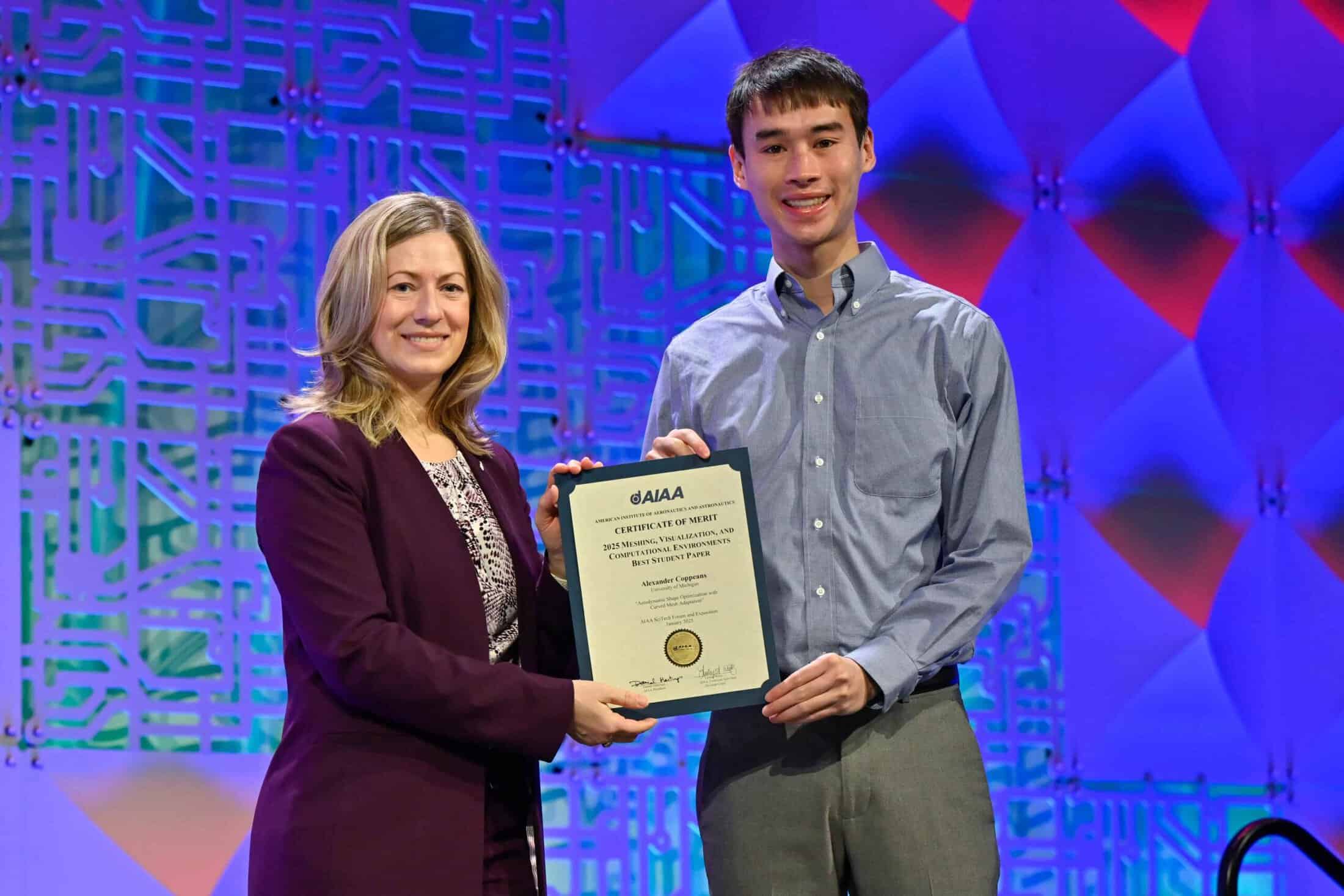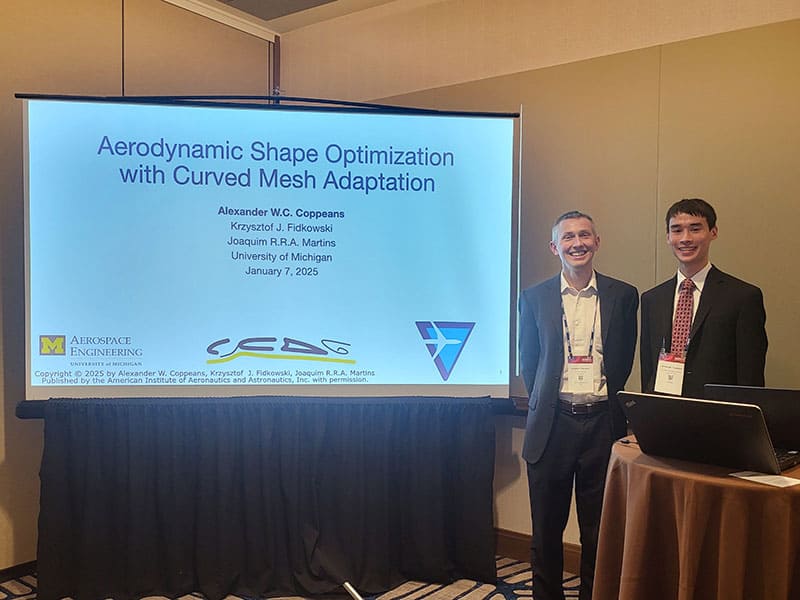
Alexander Coppeans Awarded Best Student Paper at the 2025 AIAA SciTech Forum
PhD student recognized for for research on aerodynamic shape optimization

PhD student recognized for for research on aerodynamic shape optimization
Fifth year Aerospace Engineering PhD student Alexander Coppeans received the 2025 AIAA Meshing Visualization and Computational Environments Best Student Paper Award at this year’s annual AIAA Science and Technology (SciTech) Forum and Exposition in Orlando, Florida. His paper titled, “Aerodynamic Shape Optimization with Curved Mesh Adaptation,” co-authored by Professor Krzysztof Fidkowski and Professor Joaquim R.R.A. Martins, focused on combining a novel curved mesh adaptation method with aerodynamic shape optimization (ASO).
“Winning this award is a big deal for me, especially since this is my last conference before I complete my PhD! It makes all the hard work along the way worth it. Being recognized by a panel of judges from academia, industry and national labs is an honor. It’s nice to see that my work is valued by them and has broader impacts.”
In his winning paper, Coppeans presented an efficient and robust strategy to control discretization error during ASO using a high-order discretization with curved mesh adaptation. Through his research and findings, he introduced two key advances: a method for robustly splitting elements on geometric boundaries, which is necessary to properly capture the geometry, and a concurrent mesh adaptation strategy that automatically balances accuracy and computational efficiency throughout the optimization process.
“Our mesh adaptation method natively supports high-order curved meshes needed for high-order computer fluid dynamics (CFD) methods,” Coppeans explained. “We developed a strategy that balances the cost of adaptation, the cost of the CFD simulation, and the cost of the optimizer to efficiently optimize a transonic airfoil while controlling error in the simulation.”

The team’s curved mesh adaptation strategy will help improve the robustness of both the optimization process and the CFD solution, bridging the gap between adaptive CFD and shape optimization. High-order CFD is more computationally expensive, and developing strategies to reduce their cost while controlling the discretization error for a fixed computational cost helps show they are mature enough for more widespread use.
The next steps in Coppeans’ work will be to tackle more complex problems including extending this work to three-dimensions, while also coupling it with more multidisciplinary methods to control not just individual discipline’s errors, but errors that come from coupling multiple disciplines such as aerodynamics and structures.At the University of Michigan, Coppeans is a member of the Multidisciplinary Design Optimization (MDO) Lab and completed undergraduate studies in Aerospace Engineering in 2020, graduating summa cum laude. Through the MDO Lab, he has been co-advised by Professors Martins and Fidkowski, focusing his research on Adaptive High-Order CFD for Aerodynamic Shape Optimization. Additionally, he has also previously been awarded the 2020 MICDE Fellowship and the 2021 NDSEG Fellowship.